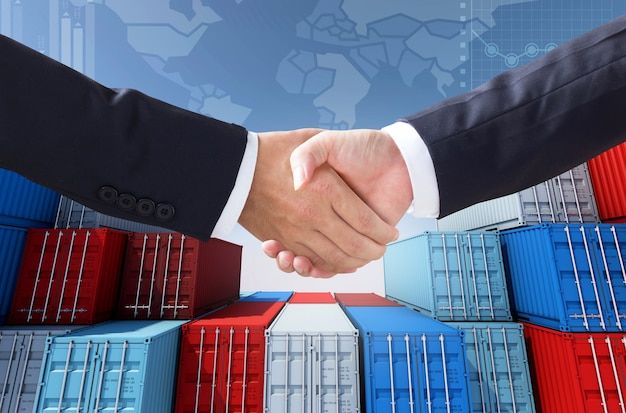Exporting Ukrainian goods: how to enter the EU market
The European Union is one of the largest markets for Ukrainian goods, offering ample opportunities to increase sales and expand the customer base. However, the process of entering the EU market is quite complicated due to high product requirements, strict regulatory standards and tax nuances. Legal support, including legal review of documents by a lawyer, legal analysis of the situation and legal advice, are important steps for successful entry into this market. In this article, we will look at the key aspects of exporting goods to the EU for Ukrainian entrepreneurs, including how to ensure that products meet the requirements, what documents need to be prepared, and how to minimise risks.
Key requirements for exporting to the EU
The EU has strict requirements for the safety, quality, environmental friendliness and labelling of goods. Failure to comply with these requirements may result in delays at customs or even a ban on the sale of goods in the EU. It is important to have your documents checked by a lawyer in advance to avoid possible violations. In addition, legal advice will help to clarify all the necessary requirements, which vary depending on the category of goods.
- Product certification. The EU has a mandatory certification system that confirms the compliance of goods with safety and quality requirements. Without certification, products cannot be sold on the European market. When preparing for export, it is important to conduct a legal analysis of documents to determine which certificates are required.
- Labelling and packaging. Goods exported to the EU must comply with labelling requirements, which must include information on composition, origin, instructions for use, expiry dates, etc. Legal analysis of documents guarantees compliance with all labelling standards, which is mandatory for imports.
- Environmental standards. The European Union adheres to high environmental standards, so goods must be safe for the environment. A legal opinion from a lawyer will help you identify what environmental requirements apply to your products and what certificates are required to comply with environmental regulations.
- Phytosanitary control. Phytosanitary control is mandatory for goods related to plant or animal products. Consulting a lawyer will allow you to prepare the necessary documents for this type of control in advance, which will significantly reduce the time of customs procedures.
How to prepare documents for export to the EU
The preparation of documents is a crucial stage of export, as the speed of customs clearance and the success of entering the EU market depend on the correctness of their completion. Contacting a lawyer to check the documents will allow you to detect mistakes in time, which can save you significant time and money.
- Certificates of conformity. All goods exported to the EU must be certified in accordance with EU standards. Legal analysis of documents will allow you to determine which certificates are required for your products and ensure their compliance with the requirements.
- Export licences. Some categories of products require special export licences to be exported to the EU. Written legal advice will make sure that all licences are properly executed, minimising the risk of product delays at customs.
- Customs documentation. Incorrect customs documentation can lead to delays at the border. A legal opinion from a lawyer will ensure that customs declarations and other necessary documents are filled out correctly.
- Transport documents. Transport documents must comply with international standards. An online legal consultation will help you make sure that the documents are prepared in accordance with EU requirements.
Legal aspects of entering the EU market
In addition to the preparation and clearance of goods, entering the EU market requires compliance with the legal requirements governing the circulation of goods. A lawyer in Poland or another EU country will help entrepreneurs to take into account the peculiarities of local legislation, in particular in matters of tax optimisation, intellectual property protection and consumer rights.
- Patent protection. If your product is innovative, it is important to take care of its patent protection in the EU. Legal analysis of documents will allow you to prepare a patent application in a timely manner and avoid possible infringement of intellectual property rights.
- Brand protection. Your brand's trademark should be registered in the EU to avoid infringement of intellectual property rights and to provide legal protection against possible copying.
- Tax aspects. Tax requirements in the EU can be complex and vary from country to country. An online legal consultation will allow you to take into account all tax obligations and minimise your tax burden.
Marketing strategies for successful entry into the EU market
To successfully enter the European market, it is not enough to simply comply with legal requirements; you also need to develop a marketing strategy. This will help to distinguish your products from competitors, attract new customers and ensure stable sales growth.
- Market analysis. Market research will allow you to better understand the demand for your products in the EU, identify target segments, and develop an approach to promoting your products.
- Brand support. Developing a strategy to promote your brand in the EU market will help build trust among customers and ensure product recognition.
- Involvement of partners. Cooperation with local distributors or networks will help you adapt to the market faster and ensure stable sales.
Question.
What are the main challenges that can arise when exporting goods to the EU?
Answer.
When exporting goods to the EU, you may face challenges related to compliance with quality standards, tax requirements and customs procedures. In addition, legal protection of your trademark and compliance with local laws are required. Consulting a lawyer and having your documents reviewed by a lawyer will help you anticipate and prevent potential difficulties.
Benefits of legal support when entering the EU market
Legal support is an important component of entering a new market, in particular, the EU market. Legal advice, legal analysis of documents and legal opinion of a lawyer provide proper legal support and minimise the risks associated with legal and regulatory requirements of the EU.
Market analysis. Advocate will help you identify the main market requirements and key regulatory features for exporting products to the EU.
Verification of documents. The correctness of documents is a key factor for export. A lawyer will check them to avoid mistakes.
Legal opinion of a lawyer. Before entering the market, a lawyer will provide a legal opinion on the compliance of products and documents.
Online legal advice. Online consultations allow you to quickly resolve issues related to entering the EU market.
Exporting Ukrainian goods to the EU market opens up new opportunities for business development, but requires a careful approach to compliance with legal and regulatory requirements. Legal review of documents, legal analysis of the situation and legal opinion of a lawyer are mandatory steps for successful entry into the European market. Engaging qualified legal support minimises risks, helps to avoid legal obstacles and ensures proper paperwork, which is essential for further successful business in the EU.



























